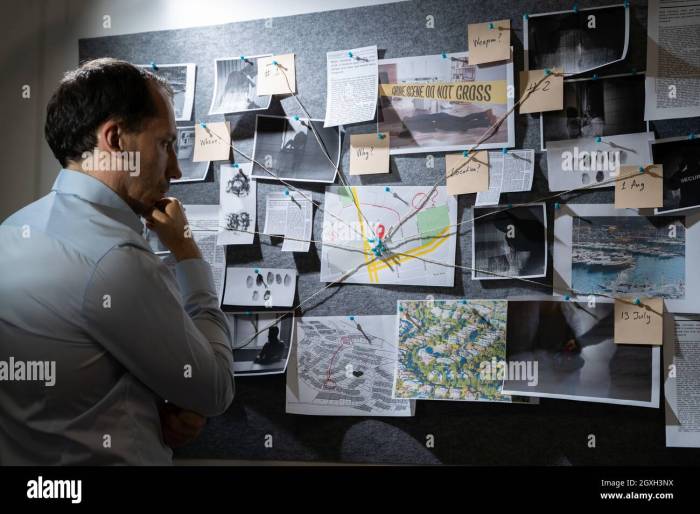The detective bureau is considered the backbone of policing, playing a pivotal role in solving complex crimes and ensuring public safety. This intricate unit serves as the cornerstone of law enforcement, embodying expertise, collaboration, and community engagement.
Detective bureaus are responsible for investigating major crimes, such as homicides, robberies, and drug offenses. They employ specialized techniques, including evidence collection, forensic analysis, and witness interviews, to unravel intricate cases and bring perpetrators to justice.
1. The Detective Bureau’s Role in Law Enforcement

The detective bureau is the backbone of policing, responsible for investigating and solving complex crimes. They play a crucial role in maintaining public safety and upholding the rule of law.
Primary Functions and Responsibilities
- Investigate major crimes, such as homicides, robberies, and drug trafficking
- Conduct in-depth investigations, gathering evidence, interviewing witnesses, and identifying suspects
- Work closely with patrol officers and other units to solve cases
- Prepare and present cases to prosecutors
Specialized Training and Expertise
Detectives require specialized training and expertise in areas such as forensic science, crime scene investigation, and interrogation techniques. They must be able to think critically, analyze evidence, and communicate effectively.
2. Collaboration and Information Sharing: The Detective Bureau Is Considered The Backbone Of Policing
Collaboration and information sharing are essential for effective detective work.
Collaboration within the Police Department
- Work closely with patrol officers to gather initial information and leads
- Collaborate with other units, such as the vice squad, narcotics unit, and SWAT team
- Share information and resources to solve cases
Information Sharing with External Agencies
- Share information with federal law enforcement agencies, such as the FBI and DEA
- Work with prosecutors to prepare and present cases
- Use technology and databases to facilitate information sharing and case management
3. Investigation and Evidence Gathering

Detectives employ various investigative techniques to solve crimes.
Investigative Techniques, The detective bureau is considered the backbone of policing
- Conduct interviews with witnesses and suspects
- Analyze crime scenes for evidence
- Surveillance and undercover operations
Evidence Collection and Preservation
Evidence collection and preservation are crucial for successful investigations. Detectives must document and preserve evidence to ensure its admissibility in court.
Forensic Science and Expert Witnesses
Detectives work closely with forensic scientists and expert witnesses to analyze evidence and provide expert testimony in court.
4. Community Engagement and Problem Solving

Detective bureaus play a vital role in engaging with the community.
Community Engagement
- Build relationships with community leaders and residents
- Attend community meetings and events
- Educate the public about crime prevention and safety
Problem Solving
- Identify and address emerging crime trends
- Develop strategies to prevent and solve crimes
- Collaborate with other agencies and organizations to address community concerns
5. Challenges and Future Directions

Detective bureaus face various challenges in the modern policing environment.
Challenges
- Evolving crime trends and technologies
- Limited resources and personnel
- Public scrutiny and accountability
Future Directions
- Adoption of new technologies, such as artificial intelligence and data analytics
- Enhanced training and professional development for detectives
- Continued focus on community engagement and problem solving
FAQ Corner
What are the primary functions of a detective bureau?
Detective bureaus are responsible for investigating major crimes, collecting evidence, interviewing witnesses, and apprehending suspects.
How do detective bureaus collaborate with other law enforcement agencies?
Detective bureaus share information and resources with other police units, federal law enforcement agencies, and prosecutors to enhance investigations and coordinate efforts.
What role does technology play in detective work?
Technology, including databases and forensic tools, aids detectives in evidence analysis, case management, and information sharing, improving efficiency and accuracy.